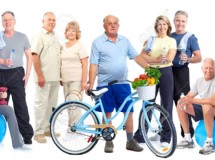Drug and alcohol experimentation is a significant part of the adolescent subculture in America.
90 to 95% of teens will have tried illegal substances before graduating from high school.
90% of teens begin experimentation with pot or alcohol.
The younger the age of first experimentation, the higher the risk of serious addiction developing.
Caring and informed parents who are willing to supervise their teenagers and take a firm stand can stop adolescent experimentation with drugs and alcohol.
It is important for parents to educate themselves about drugs and alcohol.
Know what signs and symptoms of abuse to look for in your teen.
You can find lists of signs and symptoms on line.
Look them up and know them.
Talk to your teenager about drugs and alcohol.
Be very clear about "no use.
" If your child seems at risk, a Parent-Child Contract for No Use can be very helpful.
This can be done most effectively with a trained counselor or at a counseling center that specializes in working with teens and their issues.
Spend quality time with your teen.
Talk to them and listen to them.
Set clear limits and curfews.
Welcome their friends into your home, and get to know the parents of your child's friends.
There are a number of important community resources in Contra Costa County to help parents deal with drug and alcohol abuse in their teens.
These include treatment programs, Crisis Counselors in the public schools, and a number of good parenting education classes.
You will also find licensed counselors who specialize in working with teenagers and their families.
Check the Healing the Psyche Site for an extensive list of community resources.
Remember that early intervention is crucial.
If you see signs of drug or alcohol experimentation in your teenager, take action.
90 to 95% of teens will have tried illegal substances before graduating from high school.
90% of teens begin experimentation with pot or alcohol.
The younger the age of first experimentation, the higher the risk of serious addiction developing.
Caring and informed parents who are willing to supervise their teenagers and take a firm stand can stop adolescent experimentation with drugs and alcohol.
It is important for parents to educate themselves about drugs and alcohol.
Know what signs and symptoms of abuse to look for in your teen.
You can find lists of signs and symptoms on line.
Look them up and know them.
Talk to your teenager about drugs and alcohol.
Be very clear about "no use.
" If your child seems at risk, a Parent-Child Contract for No Use can be very helpful.
This can be done most effectively with a trained counselor or at a counseling center that specializes in working with teens and their issues.
Spend quality time with your teen.
Talk to them and listen to them.
Set clear limits and curfews.
Welcome their friends into your home, and get to know the parents of your child's friends.
There are a number of important community resources in Contra Costa County to help parents deal with drug and alcohol abuse in their teens.
These include treatment programs, Crisis Counselors in the public schools, and a number of good parenting education classes.
You will also find licensed counselors who specialize in working with teenagers and their families.
Check the Healing the Psyche Site for an extensive list of community resources.
Remember that early intervention is crucial.
If you see signs of drug or alcohol experimentation in your teenager, take action.
SHARE





































